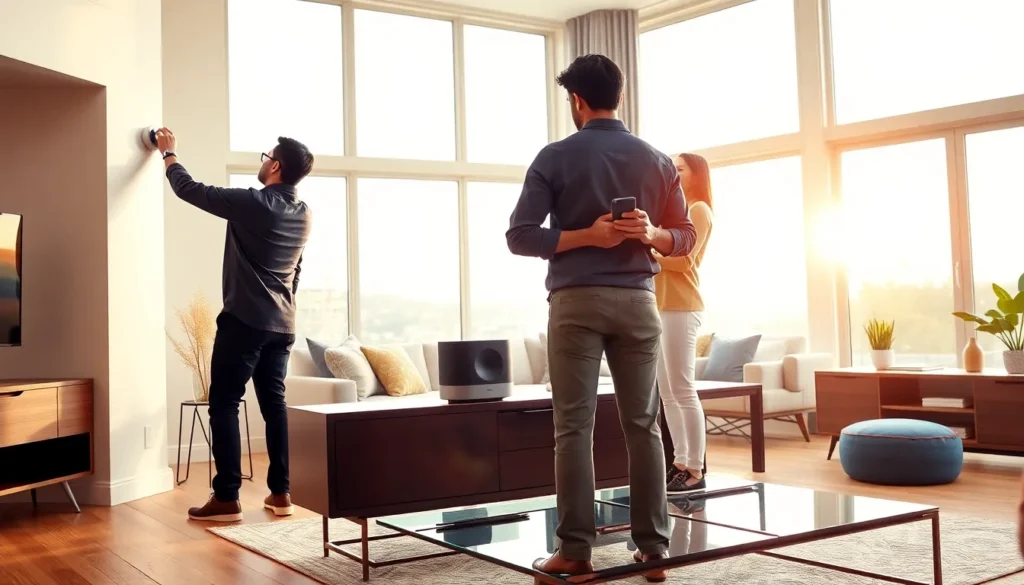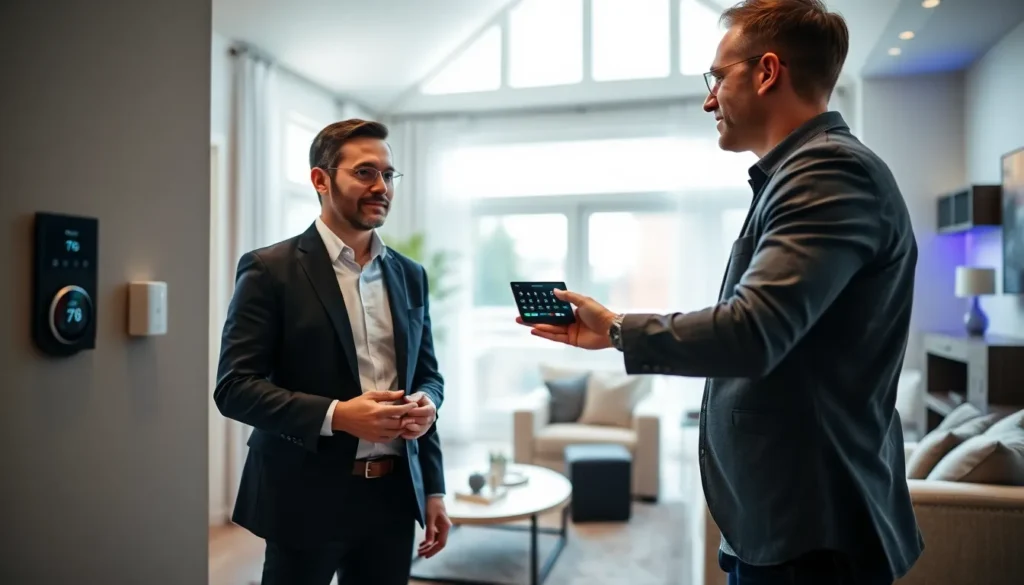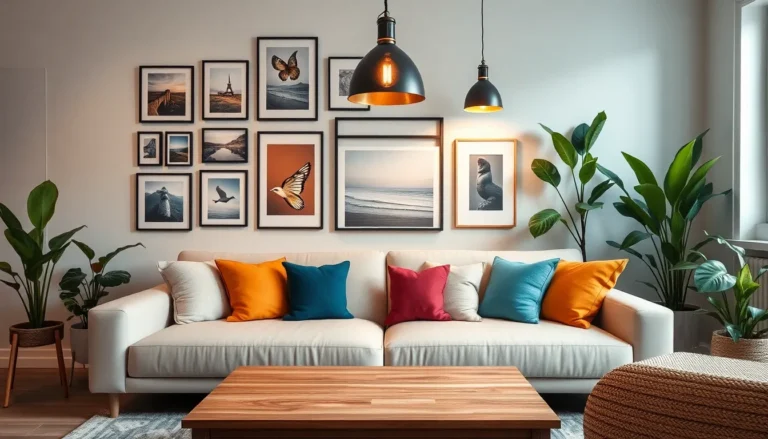Ever walked into a house that feels like it’s straight out of a sci-fi movie? Lights dimming, temperatures adjusting, and music playing, all with just a voice command. Home automation might sound like magic, but it’s very much reality. If you’re daydreaming about transforming your home into a futuristic sanctuary, finding reliable home automation installers near you is a crucial first step. Let’s investigate into the ins and outs of this enlightening world without overwhelming you with tech jargon or making you feel like you need a degree in rocket science.
Table of Contents
ToggleUnderstanding Home Automation

Home automation refers to the advanced technology that allows you to control various appliances and systems in your home, from lighting and climate to security, all remotely. Think of it as turning your home into a smart haven where even your coffee maker can join the morning rush with a simple command.
These systems use IoT (Internet of Things) technology, enabling devices to communicate with each other, providing convenience, saving energy, and boosting your home’s security. But, it’s more than just snazzy gadgets: it’s about making life easier and more comfortable. When you opt for home automation, the goal is to simplify daily tasks, making you feel more at home in your house.
Benefits of Home Automation
The benefits of home automation are as numerous as the gadgets available. Here are a few reasons why it may be time to transform your space:
- Convenience: Imagine not having to get up to adjust your thermostat or turn off the lights. The ability to manage everything from your smartphone or voice assistant brings unparalleled convenience.
- Energy Efficiency: Many home automation systems allow you to monitor and control energy usage, leading to reduced bills. Sensors can detect when a room is empty and adjust accordingly.
- Enhanced Security: Integrating security cameras, alarms, and smart locks into your home automation setup ensures you can keep an eye on your property at all times, no matter where you are.
- Comfort and Customization: Tailor your environment according to your preference at any time. Want your living room cozy and bright when you arrive home? Easily done.
- Increased Property Value: Smart homes are all the rage. Installing these systems can actually increase your home’s market value, making it more appealing to potential buyers.
Finding Local Home Automation Installers
Finding reliable local home automation installers can seem daunting, but it doesn’t have to be. Here’s how to simplify the process:
Factors to Consider When Choosing Installers
- Experience and Expertise: Look for installers who have experience with the specific systems you’re interested in. Request case studies or examples of previous work.
- Customer Reviews: Check platforms like Yelp or the Better Business Bureau for reviews from previous clients. Positive feedback often indicates trustworthy service.
- Licensing and Certification: Ensure that the installers are certified professionals and adhere to local regulations. This protects you and your investment.
- Support and Maintenance: Choose installers who offer ongoing support or maintenance services. Technology evolves, and having experts to help you keep things running smoothly is invaluable.
Questions to Ask Potential Installers
When interviewing installers, consider asking the following:
- What brands and systems do you specialize in?
- Can you provide references or testimonials from past clients?
- How do you handle installation and troubleshooting?
- What warranties do you offer on your work and the products?
- Are there potential challenges I should be aware of?
Getting clear answers will help you make an informed choice.
Understanding Quotes and Pricing
Navigating quotes and pricing for home automation can feel a bit like deciphering a foreign language. Knowing what to expect can save you from sticker shock. Here are some insights:
- Initial Setup Costs: This usually includes hardware, software, and the installation labor. Get estimates that encompass everything to avoid hidden fees.
- Ongoing Costs: Some systems might have monthly fees for monitoring services or app access. Make sure you account for these in your budget planning.
- Customization Price Variability: The more devices and functionalities you want, the higher the initial costs. A basic setup will obviously be less expensive than a full-on smart home system.
- Comparative Quotes: Don’t hesitate to get multiple quotes from different installers. This not only gives you price comparisons but also insight into what different companies can offer.
Popular Home Automation Systems
With countless home automation systems available, knowing which one fits your needs best can be confusing. Here’s a look at some popular options:
- Google Nest: Known for its smart speakers and thermostat, Google Nest seamlessly integrates with various devices, offering an easy user interface.
- Amazon Alexa: Alexa-enabled devices are incredibly versatile. From smart lights to security systems, nearly everyone can find something that works well with their products.
- Apple HomeKit: For Apple enthusiasts, this option allows users to manage all their smart products via Apple devices. Security and privacy are top-notch, making it an attractive choice.
- SmartThings: Samsung’s SmartThings offers robust automation capabilities, supporting a wide range of third-party devices, which is excellent for creating a more extensive automated ecosystem.






